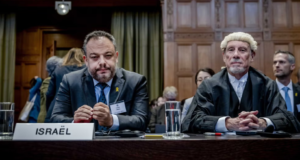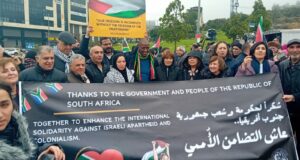22nd February 2017 | International Solidarity Movement, al-Khalil team | Hebron, occupied Palestine
As a second time ISMer I write a blog for friends and supporters back home (at salamfrombetty.tumblr.com if you would like to follow). I asked for questions from my readership and I got this from my friend Rachel:
How are you coping with living with this huge sense of injustice? How do the Palestinians manage it day in day out?
Weirdly I don’t find it hard coping with the injustice here. I don’t know why. The last time I came I was really scared beforehand that I would, but I don’t. I don’t really get angry much anywhere in my life, and I guess this cutting off is what might make a good nurse too.
I have no idea how Palestinians manage. Living under occupation comes at great psychological cost. Children in Tel Rumeida can’t sleep without the light on because they have been night raided so often by soldiers; they often wet the bed until their teens. Women are attacked by settlers and lose pregnancies. Families lose sons to prison and bullets. Everybody inside the ghetto which is H2 has to go through the daily humiliation of not having any control of how they will be treated at checkpoints, and of facing soldiers who attempted to humiliate them yesterday or last week.
Of course this is the old centre of Hebron that I am talking about. Most Hebronites from the city at large do not go there much. They live lives of occupation certainly, but not of this daily hardship. I taught a class of young and ambitious Hebronite students last week and they have studied in Jordan, Amman, Germany, travelled to China for business; they take driving lessons, they drink Italian coffee, and have dreams of running businesses, taking PhDs in physics, transforming the Hebron fire service. Great dreams. But they are still under occupation and they still know it. They are stunted in their hopes and opportunities and feel the injustice of Palestinian powerlessness. Many have not seen the sea only thirty miles away.
And then of course, many of the people I talk to in the old city have children who have ‘escaped’, who are engineers in Saudi, professors in Oxford, they have educations themselves and choose to stay. They are resisting by choice, not trapped by circumstance.
This is the front line: when the houses of Hebron are taken by settlers; when the villages in the Naqab (the Negev) are demolished and the Bedouin moved off; when the villagers of the fertile Jordan valley are put to work as labourers on their own land: then the Israeli occupying machinery will come and swallow up the next bit of Palestine and the next and the next…
My friend Talal thinks that it has taken all the years of occupation to bring Palestinians to this degree of strength and endurance: this sumud (steadfast perseverance). 69 years since the Naqba of 1948; 50 years since the occupation of 1967. That is a lot of time to develop endurance.
 International Solidarity Movement Nonviolence. Justice. Freedom.
International Solidarity Movement Nonviolence. Justice. Freedom.



